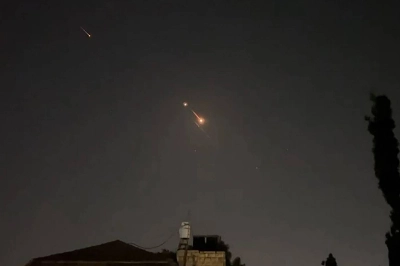Napoleon Bonaparte is supposed to have told his generals never to interrupt an enemy who was making a mistake. It is as good advice today as it was then, and Iran just found out why.
The war in Gaza has been a strategic disaster for Israel, leaving it internationally isolated in a near-impossible quest for absolute military victory over Hamas, a deeply embedded terrorist organization. Prime Minister Benjamin Netanyahu now has the opportunity to change that narrative, thanks to Iran’s failed launch of a barrage of missiles and drones at the Jewish state.
Nearly all of the missiles were shot down. Therefore, unlike after the horrific Hamas attack of Oct. 7 — and unlike Iran’s more recent dilemma over how to respond to Israel's assassination of some of its top commanders in Syria — Netanyahu can afford to declare victory and respond only symbolically, if at all. There will be no overwhelming domestic pressure to do more, because this really was a victory.




















With your current subscription plan you can comment on stories. However, before writing your first comment, please create a display name in the Profile section of your subscriber account page.